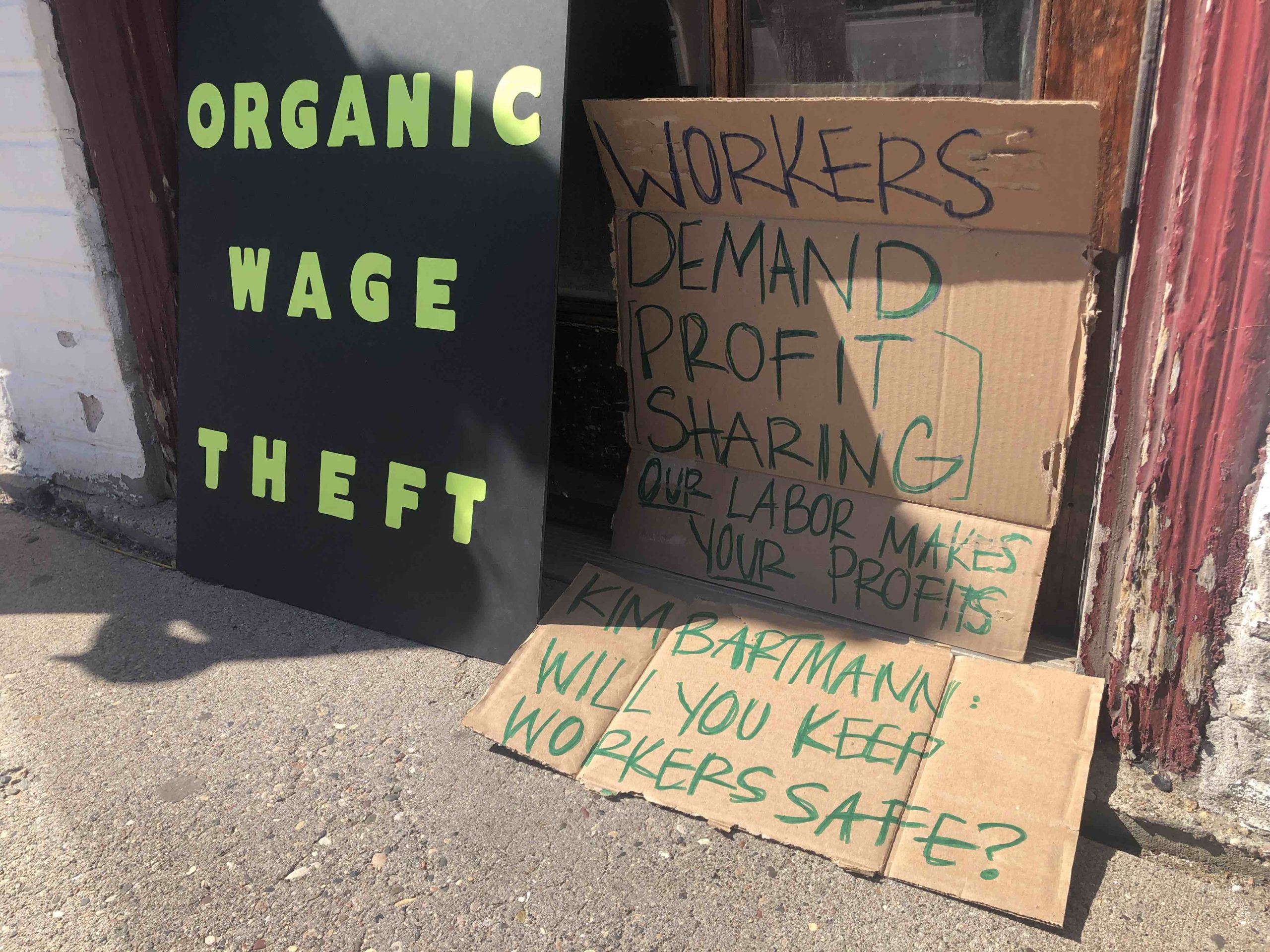

Share
Naomi Hornstein worked at Pat’s Taps, a Kim Bartmann owned restaurant in South Minneapolis. Days after the restaurant closed down due to COVID-19, an email sent from Kim Bartmann to 190 workers indicated that they would not get their last paycheck. Hornstein commented that there are, “so many workers in the restaurant industry who are already living paycheck to paycheck..this was a huge issue and blow.”
As a prominent well known restaurant, it seemed shocking that Bartmann did not have the money to pay workers for time they had already put in. Despite the endemic workplace abuse in the restaurant industry, Bartmann’s actions stand out.
The Attorney General’s office launched an investigation into the Bartmann restaurants in late March, and the case is ongoing.
While confronting their collective fear and uncertainty, Hornstein and others in the restaurant industry began organizing. They put out a public petition demanding their wages, “which got over 3,200 signatures and 90 of those signatures, self identified as Bartmann Group workers.” After five weeks the Bartmann workers eventually got their last paycheck. Bartmann still owes some overtime pay.
“We can’t go back to normal, because normal wasn’t working,” said Hornstein. “The fact that we are also fighting for broader change in the industry. We know this isn’t just about our restaurants, but about workers across the industry, in the Twin Cities and the country.”
Undeterred they kept organizing under the premise there were also issues in restaurants that are exacerbated by pandemic. “So we started kind of working on this vision,” Hornstein said.
On Wednesday, workers and supporters delivered a petition and letter to Barbette, Bartmann’s flagship Uptown restaurant, with a list of demands including payment of PTO and earned sick and safe time balances, damages, severance pay for employees who choose not to return to work and a new, cooperative ownership model for those who do.
Hornstein observes that there is a double. Presumably workers were owed thousands of dollars and even more in overtime pay. “If we had withheld that kind of money from anybody, we wouldn’t, we wouldn’t get away with it without a trial. So we want to make sure that they’re being held accountable for their actions and that they are paying damages for the issue that they have caused us, to our families. “
The organizing that led to the petition delivery on Wednesday got restaurant workers to “understand that people had similar issues in the different restaurants and that we could do something about it. We could organize around a vision of the industry and of our restaurants that could give us more dignity, could allow us to work in safety, allow us to direct decision making.”
For Hornstein, as the dial turns, weighing what it means to come back to work during a pandemic, is “something that’s really scary to me.”
“I think given how things have been playing out right now in our restaurants, we don’t know what kind of safety protocols are going to happen and we don’t know that management is going to look out for us as workers. And so I think for me, it feels really scary to think about going back to work and I’m really weighing if I want to..” Hornstein further stated.
Even if customers are on patios and abiding by social distancing, it’s hard to sustain that level of safety in the back of house and on the floor.
Overall, for Hornstein the experience has been transformative.
“I would consider myself having been socially engaged before, but I’ve never done workplace organizing and it feels very powerful and very raw,”. Hornstein said. “I love my coworkers at Pat’s and I love the regulars and I love the community. And so it feels very, very close to home and also really, really powerful and transformative. I hope that Kim and the Bartmann group hear us because we are really trying to push for a better future for us and the people that we care about.”
You can support displaced workers through their GoFundMe campaign.

